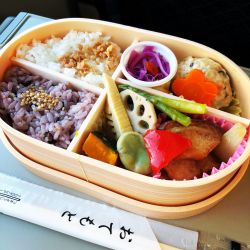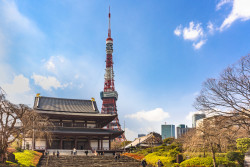
November 5, 2024
Fresh Ink: The Ramen of Thanatos – Or, Puckering Flavor
The English-language debut of philosopher Masaya Chiba
Masaya Chiba is one of Japan’s foremost philosophers and authors. He is a noted expert on Gilles Deleuze and has written best-selling works of popular philosophy and award-winning queer fiction, including a nomination for the Akutagawa Prize. His writings have yet to receive English translations, marking this small but extraordinary excerpt from his essay collection Imi Ga Nai Muimi (“Meaninglessness Without Meaning”) as the English debut of the philosopher.
The English-language debut of philosopher Masaya Chiba
By Masaya Chiba, translated by Eric Margolis
Have you ever wondered why ramen is the perfect meal after a night of drinking? There are some pseudoscientific theories out there giving answers, but lately, I’ve started to suspect that it may be one manifestation of the Freudian death drive. Getting thoroughly drunk brings us closer to death. It’s like playing at suicide. Thinking and living stop mattering. Thinking in order to live stops mattering. Then, with a ramen late-night snack, we become satiated. We sleep. We drink to our heart’s content, pull down the curtain on the night with some tasty ramen, then collapse into bed and enter a catatonic state. Ramen pulls down the curtain on life. On ourselves. I particularly like one ramen shop that faces the main road in Shinjuku Nichome. They serve up seriously salty miso ramen there.
The bowls are filled to the brim with a mega-serving of miso broth, topped with a few scraps of green onion and bamboo shoots that combine with a little clump of barbecued pork to form a strip of land in the middle of a broth sea. The simple but powerful salt flavor overwhelms me. There’s no umami, no harmony. In Japanese, salty is shoppai, but this is kijoppai. Savory, saline, puckering. It beats you over the head. And I want to get knocked into its sea. I want my body to plunge into the puckering Dead Sea and pickle there—in other words, enter a catatonic state.
I want to become a hunk of salted meat. Turn into cured ham and sleep forever, preserved in my boyhood. After all, salting yourself is an anti-aging technique of sorts.
I moved from Tokyo to Osaka three years ago, but I haven’t found a satisfactory ramen joint yet. Osaka ramen has a characteristic sweetness to it. The taste almost makes me wonder if they add sugar or something. The sharp corners of spice are rounded out. I still haven’t gotten used to western Japan’s version of spicy, and in my heart, I don’t think I want to. In Osaka, “salty” and “spicy” consistently overlap, but to me, the whole concept of a dish being “salty” or “spiced with salt” involves no red pepper hotness whatsoever, and certainly no sweetness. To me, tingly hot spice comes from the gentle, swaying tropics and sweat-inducing Chinese and Korean dishes, whereas salty flavor—or puckering flavor—comes from my homeland, the plains and hills of north Kanto. All of that sharp puckering salted and preserved my boyhood. Crystallized it. So at two in the morning in Nichome, when I slurp the puckering hot broth, I get to play make-believe suicide, in the Dead Sea soup that is none other than the melted form of my own preserved boyhood.
Soaking in salt… Becoming inorganic matter as per Freud’s death drive, as per the will of Thanatos. Does that mean craving sweet flavor is a “life drive”? Sweet flavor has sugar; it has fat (which recalls breast milk). We begin to see a binary: the sweet of Eros and the salty of Thanatos. All meals can be described as sweet-and-salty, in varying amounts. We eat the sweetness of grains alongside the saltiness (and sometimes sweetness) of meats, vegetables, soups. Sweet-and-salty flavor represents none other than the road between life and death, between organic and inorganic, between Eros and Thanatos.
Meals are experiments in self-destruction. We get full and sleepy (not unlike being satiated by sex and getting sleepy). We enter a catatonic state. Meals offer a break from the relentless task of thinking in order to live. The experience of getting tired of thinking in order to live and practically crashing into the dinner table is on the one hand the literal act of restoring energy, but it is also formally and ritualistically a simulation of dying. Meals careen us towards death. We tire of our labors—no more, that’s enough!—and we collapse into meals and the catatonic state they bring. In order to avoid the death simulation of a meal (or in order to keep thinking and living without a break), you’ll have needed to overeat in advance, or will need to overeat later. You’ll need special preparation to avoid the death simulation, usually by getting a sugar or caffeine fix during the workday.
Here in Osaka, I cannot help but to long for Tokyo’s ramen of Thanatos. Comfort food in Osaka has mastered the art of sweetness. There’s the sauce that douses takoyaki balls and okonomiyaki pancakes, the buttery sweetness of deep-fried skewers… To my surprise, even the curry here is sweet. Osaka Indian curry joints balance a child-friendly sweetness and a hot spice hand in hand. By contrast, puckering taste is far from a sophisticated flavor—it’s crude, it’s rural. I’m not used to sweet (i.e. erotic) comfort food. But the mixed blessing of puckering comfort food is where I’m from and what I’m talking about. My vote goes not to fatty salmon in sweet-and-savory sauce, but to flaky, briny, salty grilled salmon.
Whenever I visit Tokyo, I try to verify what exactly the ramen of Thanatos does to me. I try to get overwhelmed by the familiar north Kanto negation, brought about by puckering flavor. Or a negation brought about by a certain puckering, rising intonation. Over the New Year, on my way to my hometown of Utsunomiya, I transferred from the Tokaido bullet train to the Tohoku one. Twenty-five minutes past Tokyo at Omiya Station, a middle-aged man popped into my train car, saw that it was full, and snapped, “Gimme a break!” in a rising intonation.
This particular resigned intonation like snorting your runny nose into a tissue—a backwater half-heartedness that loses in terms of force to Tohoku earthquakes and feels nothing but envy compared to the speed of Tokyo bustle—reminded me that I was still soaking in salt. That the puckering ramen broth had activated on my tongue and sent me into a time loop. I try to spit out fragments of long-cured ideals about my past self—only to instantly slurp them back up, and begin the salting anew.
Learn more about Masaya Chiba at the official site.
If you enjoyed the English-language debut of philosopher Masaya Chiba, read more English-language debuts in our entire Fresh Ink series.







